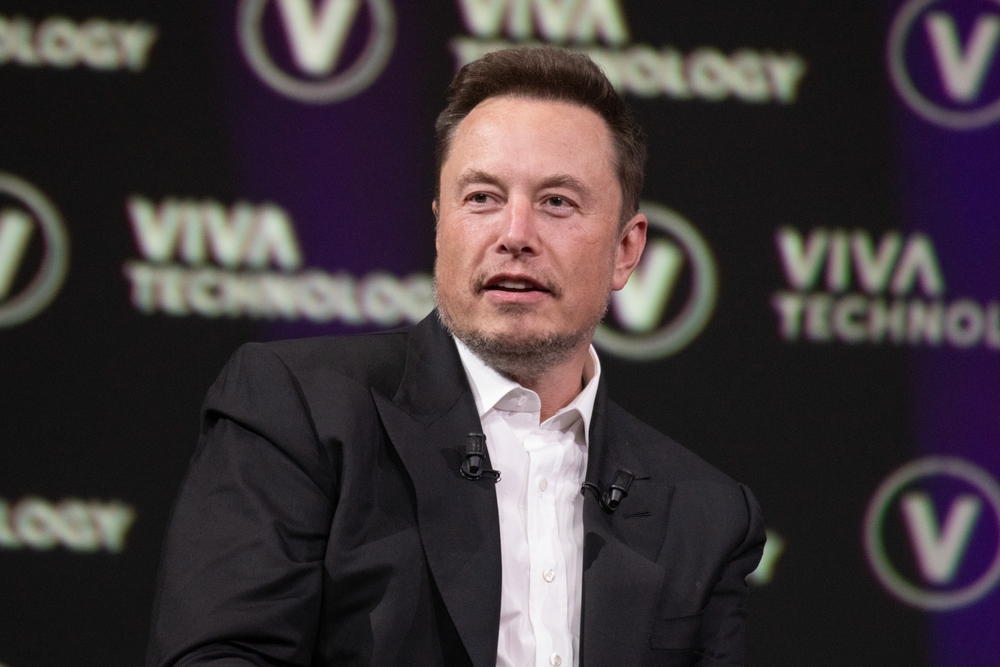Tesla shareholders have approved a record-breaking pay deal for Elon Musk that could reach nearly $1 trillion. The vote passed with 75% support at the company’s annual meeting on Thursday, drawing loud applause from the audience.
Musk, already the world’s richest person, must drastically increase Tesla’s market value over the next decade to unlock the full payout. If he meets all goals, he will receive hundreds of millions of new Tesla shares.
Critics have condemned the enormous reward, but Tesla’s board warned that Musk could leave without it. They argued that losing him would damage the company’s future.
Celebration in Texas as Musk takes the spotlight
After the announcement, Musk stepped onto the stage in Austin, Texas, and danced to chants of his name. “We’re not just starting a new chapter for Tesla, we’re writing a whole new book,” he told the cheering crowd.
He joked, “Other shareholder meetings are dull. Ours are electric. Just look at this energy.”
To earn his full payout, Musk must lift Tesla’s market value from $1.4 trillion to $8.5 trillion and put one million self-driving Robotaxi vehicles into operation.
Focus turns to Tesla’s humanoid robot
At the meeting, Musk shifted attention to the Optimus humanoid robot, surprising many investors who expected him to focus on electric cars.
“Let it sink in where Musk’s focus lies,” wrote Gene Munster, managing partner at Deepwater Asset Management, on X. “His new vision starts with Optimus. Still no mention of cars, self-driving, or robotaxis.”
Later, Musk did mention Tesla’s full self-driving system, saying the company was “almost comfortable” allowing drivers to “text and drive essentially.”
Investigations into self-driving technology
US regulators continue to investigate Tesla’s self-driving feature after several incidents involving cars running red lights or driving on the wrong side of the road. Some of these cases led to crashes and injuries.
Despite the ongoing scrutiny, Tesla’s stock rose slightly in after-hours trading and has climbed more than 62% in the past six months.
Politics and the company’s public image
Tesla’s sales have declined over the past year after Musk’s public alignment with former US President Donald Trump. Their relationship fell apart earlier this year, adding to Tesla’s public image challenges.
Investor Ross Gerber, chief executive of Gerber Kawasaki, described Musk’s new deal as “another unbelievable moment in business.” He said Tesla still faces major obstacles despite Musk’s ambitious plans.
Gerber questioned the market demand for humanoid robots and pointed to rising competition in robotaxi services from rivals like Waymo.
He added that his firm recently reduced its Tesla holdings due to “the polarisation of Musk’s persona,” which has “damaged the brand’s value.” “Elon seems disconnected from the reality that his public approval is very low,” he said.
Supporters call Musk Tesla’s driving force
Dan Ives, a tech analyst at Wedbush Securities, called Musk “Tesla’s biggest asset.” In a note after the vote, he wrote, “The AI-driven value of Tesla is now beginning to emerge. The next growth phase has started.”
Musk already owns about 13% of Tesla’s shares. Shareholders had previously approved a large pay package linked to a tenfold increase in Tesla’s market value, a target Musk already achieved.
Legal battles and corporate moves
A Delaware judge later struck down that earlier deal, ruling that Tesla’s board was too close to Musk. The company then moved its legal base from Delaware to Texas. The Delaware Supreme Court is now reviewing the lower court’s decision.
The new plan faced opposition from major institutional investors such as Norway’s sovereign wealth fund and the California Public Employees’ Retirement System, the largest US public pension fund.
Because of their resistance, Musk relied heavily on Tesla’s unusually large number of retail investors to secure the vote.
Tesla board’s campaign for Musk’s plan
Musk and his brother Kimbal, who serves on Tesla’s board, both voted at Thursday’s meeting. In the weeks leading up to it, Tesla’s directors launched a marketing campaign urging shareholders to support the deal.
A promotional video on votetesla.com featured board chair Robyn Denholm and director Kathleen Wilson-Thompson praising Musk’s leadership and vision for the company’s future. The campaign drew criticism from governance experts who warned it blurred the line between shareholder engagement and corporate promotion.


